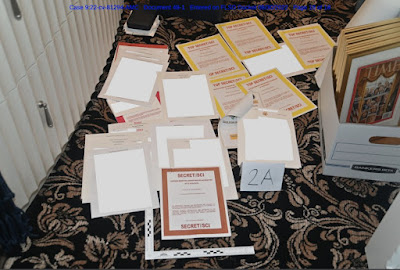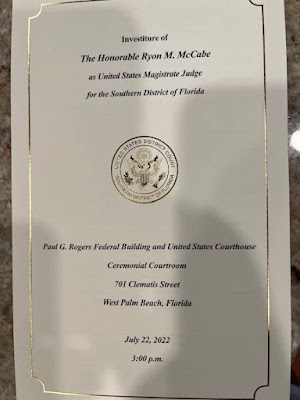By Michael Caruso
Mr. Byrne's post yesterday reminded me of a
recent article and our professional choices.
Let's assume we all want to "do good." Is the way you do good effective? Is the way you do good actively harmful? The
"effective altruism" movement arose out of a desire to make sure that attempts to do good actually work.
For a time, the E.A. movement recommended that "inspirited young people should, rather than work for charities, get jobs in finance and donate their income." In other words, does a person do more good volunteering
for Teach for America for two years after graduation or working at Goldman Sachs and donating 85% of their income to a charity with a proven record of saving lives? At TFA, a young person may impact many lives, and the ripple effect of that work cannot be quantified. But, according to
Give Well, about $7 protects a child from malaria. In 2021, Give Well directed funding to the
Malaria Consortium to support this program at an estimated average cost-effectiveness of $5,000 per life saved.
Because I'm paywalled, I couldn't read the DBR article linked by Mr. Byrne. But here is
a chart from earlier this year reporting the associate salary pay scale. If you're a 4th-year associate making around $300,000 a year and donate "only" 50% of your gross income, you can save 30 lives in one year!
Here's another example. Vitamin A deficiency leaves children vulnerable to infections and can lead to death. Give Well attributes over 200,000 deaths to Vitamin A deficiency each year, and that about $1 will deliver a vitamin A supplement to a child in need. In 2021, the group directed funding to
Helen Keller International to support this program at an estimated average cost-effectiveness of $3,500 per life saved. That effective altruist 4th year at Big Law could save over 42 lives.
This approach
has critics, of course, most notably the philosopher Amia Srinivasan. She wrote: "Yet there is no principled reason why effective altruists should endorse the worldview of the benevolent capitalist. And although [E.A.] focuses on health as a proxy for goodness, there is no principled reason, [] why effective altruism couldn’t also plug values like justice, dignity or self-determination into its algorithms. Effective altruism has so far been a rather homogenous movement of middle-class white men fighting poverty through largely conventional means, but it is at least in theory a broad church." But she conceded the basic power of the movement’s rhetoric: “I’m not saying it doesn’t work. Halfway through reading the book I set up a regular donation to GiveDirectly,” one of GiveWell’s top recommended charities.
Srinivasan and other critics have valid points. E.A. tends to focus on single actions and their proximate consequences and, more specifically, on simple interventions that reduce suffering in the short term and largely neglects coordinated sets of actions directed at changing social structures that reliably cause suffering. According to critics, this neglect is politically dangerous because it obscures the structural roots of global misery, thereby weakening existing political mechanisms for positive social change and perhaps contributing to its reproduction.
At the very least, the E.A. movement has generated a significant volume of useful information to help us make decisions as to how we spend our time and our money to "do good."












